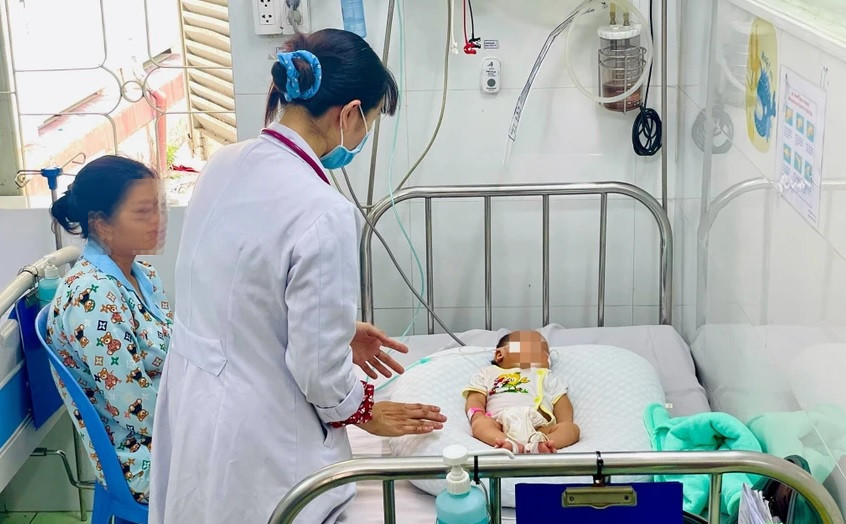
According to data from the Ho Chi Minh City Center for Disease Control, there have been 30 reported cases of whooping cough from the beginning of 2024 to date. Of these cases, 90% involve children under 5 years old, and 40% are in children under 2 months old—an age group not yet eligible for the first dose in the Expanded Immunization Program.
All children diagnosed with whooping cough had mothers who were either unvaccinated or had unknown vaccination histories.
Doctor Tran Ngoc Luu from the Department of Infectious Diseases at Children's Hospital 2 reported that while the hospital usually sees sporadic whooping cough cases annually, this year's numbers are significantly higher, with many cases requiring hospitalization and some becoming severe.
A report from Children's Hospital 2 indicates that approximately one-third of whooping cough cases require oxygen cannula, and over a quarter of the cases are diagnosed with complications such as pneumonia, bronchiolitis, bronchopneumonia, and gastroesophageal reflux. Currently, no epidemiological links have been found between these cases.
Doctor Luu suggests that the high incidence of whooping cough in children this year might be due to an immune gap, where unvaccinated older children and adults contract the disease and transmit it to unvaccinated infants.
In response to the rising cases, the HCM City Department of Health has ramped up communication efforts regarding whooping cough prevention, vaccination schedules for young children and pregnant women, and regular and catch-up vaccination activities. Districts have been reviewing and contacting families to ensure children who have not been vaccinated or have not received all doses are brought in for vaccination.
Whooping cough, an acute respiratory infection, predominantly affects children. Infants and young children are mainly infected by their mothers or caregivers at home. If an outbreak occurs, the disease can progress severely, leading to death due to secondary infections and complications such as pneumonia and bronchopneumonia, particularly in children under 5 years old and malnourished children. The disease tends to have a cyclical epidemic pattern every 3-5 years.
The whooping cough vaccination schedule for children is as follows:
- Injection 1: At 2 months old
- Injection 2: At 3 months old
- Injection 3: At 4 months old
- Injection 4: Booster at 18 months old
For infants too young to be vaccinated, passive immunity from the mother (transferred through the placenta) is crucial. Vaccination of pregnant mothers with the whooping cough vaccine helps protect both the mother and the child, providing necessary antibodies to safeguard the child in the early months of life when they are not yet fully vaccinated.
Bach Duong